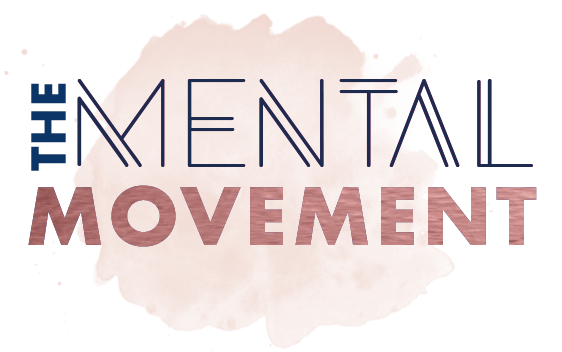Other people are undoubtedly our lifeblood – without them, we’d find it a heck of a lot harder to feel loved, appreciated, supported, entertained, inspired and our experiences of life would be a lot less enjoyable without others to share them with.
We think other people are important to us now but, in our cavewoman days, our survival depended almost entirely on the collective strength of our tribe.
There was immense safety in numbers and it was critical that we were seen to pull our weight to make sure we weren’t deemed a weak link and thrown out on our ear to fend for ourselves (aka tomorrow’s breakfast for the local lion).
These days, our relationships are more about connection than survival, but our brains don’t seem to have adapted. Many of us, still place a huge amount of importance on fitting in and proving our strength to the various tribes that we now find ourselves connected to.
And my belief is that, in applying these primitive protection tactics in our modern world, we’re inadvertently making life really hard for ourselves.
Our modern ways of fitting in with the tribe
#1 Hiding behind a mask
The fear of being booted out of the tribe for not pulling our weight has translated into wanting to hide our weaknesses from the rest of the world.
This might look like putting a lot of energy into only allowing our best selves to be seen, pretending that we’re something that we’re not, not speaking up or sharing our opinion and being passive for fear of saying or doing the wrong thing.
#2 Comparison
Placing a huge amount of focus on what everyone else is up to and feeling that it’s imperative that we at least meet, if not exceed, the same standard in order that we’re doing this life thing right.
Not only might we be comparing with people in totally different situations who have completely different priorities to us, we forget that most of the time we are comparing our insides with their outsides.
We’re often taking the most vulnerable side of ourselves (the bit that we don’t want anyone to see) and lining it up against the very best edit of what they’re proud to show to the world.
It’s a grossly unfair and unwinnable game from the outset and that’s why “Comparison is the thief of all joy”.
#3 Prioritising the needs of others
This one tends to come in two flavours: ‘the people pleaser’ and ‘the caring too much what other people think’.
Both are examples of putting other people’s needs, preferences and opinions before our own. We’re working on the flawed assumption that by satisfying others, we’ll automatically be satisfied ourselves.
We change our behaviour based on what we think other people value or want (usually a massive assumption in itself), we end up saying ‘yes’ when we mean ‘no’ and end up neglecting ourselves in the process.
How this might be showing up in your life
The “I’m not good enough” story – not surprisingly when we unfairly compare our insides to someone else’s outsides or when we set the expectation that we mustn’t show weakness, we’re very often going to come up short and draw the conclusion that we’re not good enough.
From there it’s easy to find ourselves in a permanent state of dissatisfaction – when we never meet the standards that we perceive are being set by everyone else, how can we ever feel satisfied with who we are, what we’ve done or what we have?
And when we continue to believe that fitting in is very important, we find ourselves on a perpetual mission to do better, to keep up with others and meet those fictional, warped, externally driven expectations.
It becomes an exhausting and overwhelming daily battle that drains our energy, diverts our attention away from what’s truly important to us and causes buckets loads of unnecessary stress and anxiety.
The bizarre reality of fitting in
Some of the above might already be familiar to you, but what I find really interesting is what we can notice when we consider that many of us are stuck in the same trap and behaving in the same way.
I am looking at you and seeing the things I don’t have or the things you’re good at that I’m not. I’m working really hard to make changes, improve and demonstrate to you that I’ve got it all under control. You’re then looking at me and seeing all the things I have that you don’t or all the things I’m good at that you’re not. You then work hard to make changes etc etc…..you see where I’m going with this one.
It’s all circular.
None of us feel like we fit in because we’re all working towards this imaginary state of communal perfection.
And the other bizarre reality is that many of us don’t actually like the people that we perceive to be perfect anyway!! We find them one-dimensional, difficult to connect with and, often, find it hard to trust them because we’re suspicious about what’s really going on behind the polished exterior.
So that’s two ways (in addition to making us feel ‘not good enough’) in which the whole theory of ‘fitting in’ is totally flawed.
My closing thoughts
In trying so hard to fit in, I can’t help but feel we’re inadvertently missing out on some connection by holding back our most interesting bits from the world.
There’s nothing I enjoy more than being let into the world of another complex, imperfect, fascinating human being. It’s interesting, it feels like a total privilege, it makes me feel strongly connected to them and it gives me permission to reveal my own imperfect side.
Some questions for you to consider:
- How have you felt when other people have let you in to see a side of them that you perhaps hadn’t realized was there?
- Did you think they were weak?
- Did it make you like them more or less?
- How did it make you feel about yourself?
In the same way that we can collectively create a negative perpetuating cycle of trying to keep up we can also take responsibility, as individuals and together, to create a positive cycle of showing more of our real selves to each other.
Surely what all of us really want is to be able to let go, let our guard down, put on our elasticated yoga pants, let it all hang out and have a bloody good laugh about it.
My challenge to you is to pick a situation in which you know you could benefit from letting your guard down, showing more of yourself, worrying less about what others think or standing up for what’s uniquely important to you.
Playfully experiment in one small way, behave slightly differently than you would normally, see how it feels and be curious about what happens next.
If you’re up for giving it a go then I’d love to hear how you get on, all thoughts welcome at [email protected].
And if you’ve enjoyed this post and want to hear more on my favourite subject of ‘good enough’ then make sure you’re signed up right here.


